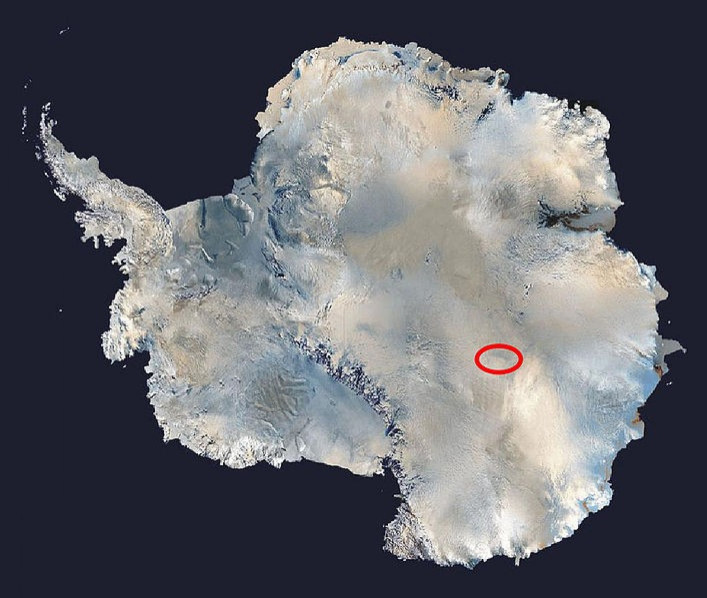Lake Vostok Drilling: Russian Scientists Reach 20 Million Year-Old Lake

Russian scientists succeeded in drilling two miles beneath Antarctica into Lake Vostok on Sunday, according to Russian news service Ria Novosti. The success caps off a decade-long expedition to be the first to reach the isolated Lake Vostok, which is buried 3,962 meters (13,000 feet) below the ice. The lake hasn't been exposed to air in more than 20 million years and could give researchers a look into a new extremophile ecosystem.
A source familiar with the expedition told Ria Novosti Monday that Yesterday, our scientists stopped drilling at the depth of 3,768 meters (12,362 feet) and reached the surface of the sub-glacial lake.
The Lake Vostak drilling began in 1998, with an initial drilling of the 15,695 square kilometer (6,060 square mile) lake, similar in size to Lake Ontario. The team reached 3,596 meters (11,800 feet) quickly, but stopped over concerns of contamination of the never-before-touched lake water. In order to ensure this didn't happen, scientists agreed to drill until they found free water, at which point they would adjust the pressure on the drill to cause the lake water to rise through the hole due to the pressure from below. From there the water would freeze on the surface, and they could sample it without contaminating Lake Vostok.
Many are not convinced that Russia's attempt at shielding the lake from contamination will work. The Antarctic and Southern Ocean Coalition, a Washington, D.C.-based group focused on environmental issues on the Antarctic continent told Discovery News that the Russian's use of kerosene to drill and keep the hole open will contaminate the lake, and that they should try other methods, such as hot-water drilling. The scientists dismiss this idea, saying hot-water drilling requires more power than they can generate.
Researchers from Russia's Arctic and Antarctic Research Institute drilled for weeks to reach the lake. Loss of communication from the team caused concern that members were in trouble as Antarctica's winter approached, when temperatures can drop to -80 degrees Fahrenheit (-62 degrees Celcius). Others had more faith.
They are very capable scientists and drillers and the thought never entered my mind that they are in any kind of danger, John Priscu, a microbiologist from Montana State University who has worked on similar Antarctic exploration programs, told FoxNews. Priscu added that the scientists need to complete their study soon, or the cold will force them away from the site for over a year. Temps are dropping below [minus 40 degrees Fahrenheit] (-40 degrees Celcius) and they have only a week or so left before they have to winterize the station, he told FoxNews. I can only imagine what things must be like at [Lake Vostok] this week.
The Russians aren't the only ones who are trying to reach ancient Antarctic lakes. The British Antarctic Survey is trying to drill into Lake Ellsworth as American surveyors are studying the subglacial Whillans Ice Steam.
Hopefully, all three projects will succeed, and then we'll enter a new era of science and maybe cooperation, Priscu said. I could imagine an international team going back to Vostok and starting a project to drill much further into the lake with a higher level of technology and innovation.
© Copyright IBTimes 2025. All rights reserved.





















